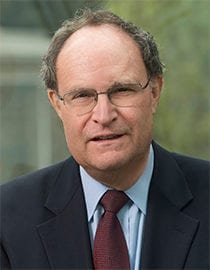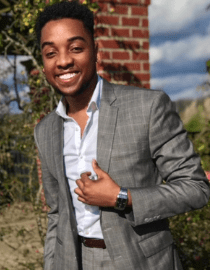
By Andrew Cohen
Berkeley Law Professor David Oppenheimer was pleased, though hardly surprised, when the onset of a global pandemic triggered an onslaught of outreach from colleagues worldwide.
Director of the Berkeley Center on Comparative Equality & Anti-Discrimination Law — whose members span six continents — Oppenheimer and his peers feared the pandemic would be particularly lethal for people already marginalized by discrimination and exclusion. Days later, more than 200 center participants had joined the new COVID-19 Working Group. They formed six hubs focused on various concrete issues, led by law professors from Sweden, Hong Kong, and Australia.
In the United Kingdom, University of Portsmouth law professor Panos Kapotas suggested developing a multi-university online course to study the equality impact of the pandemic. Oppenheimer agreed to host and help design it, launching a transformative experience for 13 Berkeley Law students and another 100-plus students from 11 universities across the world.

“The pandemic’s impact has been global, and it’s commonplace for people to say, ‘We’re all in this together.’ We’re not,” Oppenheimer says. “In fact, the impact has been disproportionately felt by people who are already disadvantaged by reasons of race, ethnicity, gender, disability, poverty, age, and intersections of disfavored identity. We wanted to provide a course that explored how the pandemic affects members of these communities through the lens of equality law.”
The course — COVID-19 and Global Inequalities — featured brief lectures by professors from 23 universities, and breakout rooms with small groups of students engaged in thought-provoking conversations about universal issues that countries have addressed in different ways.
“When David established the COVID-19 Working Group it was only a matter of time before we realized that, during these times of isolation and uncertainty, we should be bringing this sense of global community and this shared commitment to fight inequalities to our own students,” Kapotas says. “David, together with the center’s brilliant teaching assistants, produced the backbone of the course — syllabus, proposed faculty contributors, time frame — in just a few weeks.”
Threading the needle
Beginning with general theories and sources of equality law as a foundation, the course probed how the pandemic has undermined equality within gender, race, disability, sexual orientation and identity, age, indigenous status, and poverty — and how it has intersected with domestic violence, incarceration, and migration.
A core group of 18 faculty from six continents divided the curriculum based on areas of interest and expertise, then invited another seven guest speakers to fill in a few gaps.
Though Oppenheimer was disappointed that his colleagues from Australia, China, Hong Kong, and Malaysia determined that they could not enroll students under their university’s rules, that made it possible to set a manageable class meeting time. Still, there were challenges.
“We had to track the time carefully, because on various dates nations in the Southern Hemisphere moved ahead to daylight saving time while nations in the Northern Hemisphere moved back to standard time,” Oppenheimer says. “For the last few weeks of the semester, our Berkeley students had to show up at 7 a.m. instead of 8 a.m. — assuming they were in Berkeley.”
Each 110-minute class session reserved 40 minutes for small group discussions in breakout rooms, giving students time to exchange their perspectives. To help forge these new relationships, faculty instructors will continue to meet with students voluntarily in the spring and supervise some multi-university research projects. Oppenheimer and Kapotas hope to provide a revised version of the course next fall.
“Reading the comments in the zoom chat at the end of each class has been a really humbling experience,” Kapotas says. “Apart from the praise for the colleagues leading the classes, it was particularly touching to see how many students were enthusiastic about meeting everyone again the following week and how many were eager to continue meeting next term.”
Rave reviews
After a semester spent in conversation with students and professors from six continents, Berkeley Law student Margaret Ebacher-Rini ’22 realized “that many of the issues of inequality and the pandemic that we have been experiencing in the U.S. are universal.” She says she also recognized “that we have so much progress that needs to be made in the United States, and we can truly learn from what other countries have done.”
Already familiar with the multinational work Oppenheimer does through his center, Ebacher-Rini wanted to learn how different groups –– racial minorities, migrants, low-wage workers, persons with disabilities, and others –– have been uniquely affected by the pandemic and overlooked in responses to it.
“There is no one topic we discussed that didn’t resonate with me,” she says. “Learning from students and professors from other countries is incredibly important, especially because quarantine has felt so isolating that it has been easy to lose that perspective. At our last class meeting, several students mentioned that this class had been the highlight of their semester. I agree!”

When Justin Brooks ’21 learned that the course would involve international students from other institutions, “I signed up immediately,” he says. “We’re in a globalizing world, and it’s critical for us to understand non-American perspectives to truly create equitable solutions to the problems that plague our world.”
Surprised at how well-versed other students were about the American electoral process and legal system, Brooks says the course taught him “so much about different parts of the world and how their societies and governments are structured.” He adds that he is now more aware of how people across the world are grappling with deep social inequities.
“I want to join the fight,” Brooks says. “I have been encouraged to even spend some time abroad after law school.”
Jennifer Chung ’22 appreciates that Oppenheimer “managed to put together a dynamic, international course in a short period of time.” She describes it as “very engaging” and “full of curious and intellectually-motivated students.”
Each small group discussion includes students from several universities, so different countries are represented in each meeting. For Chung, the course greatly expanded her view of the pandemic and its far-reaching implications.
“While I read the news every morning and keep up with COVID-19 developments around the world, the course led me to assess how the pandemic has affected different groups in different ways,” she says. “It has been such an enriching and eye-opening experience. My peers from other universities shared their diverse perspectives in every class, and they weren’t shy to engage in and even lead class discussions.”